The ACT Spring Oncology Appeal
We're raising money for a dedicated chemotherapy treatment room.
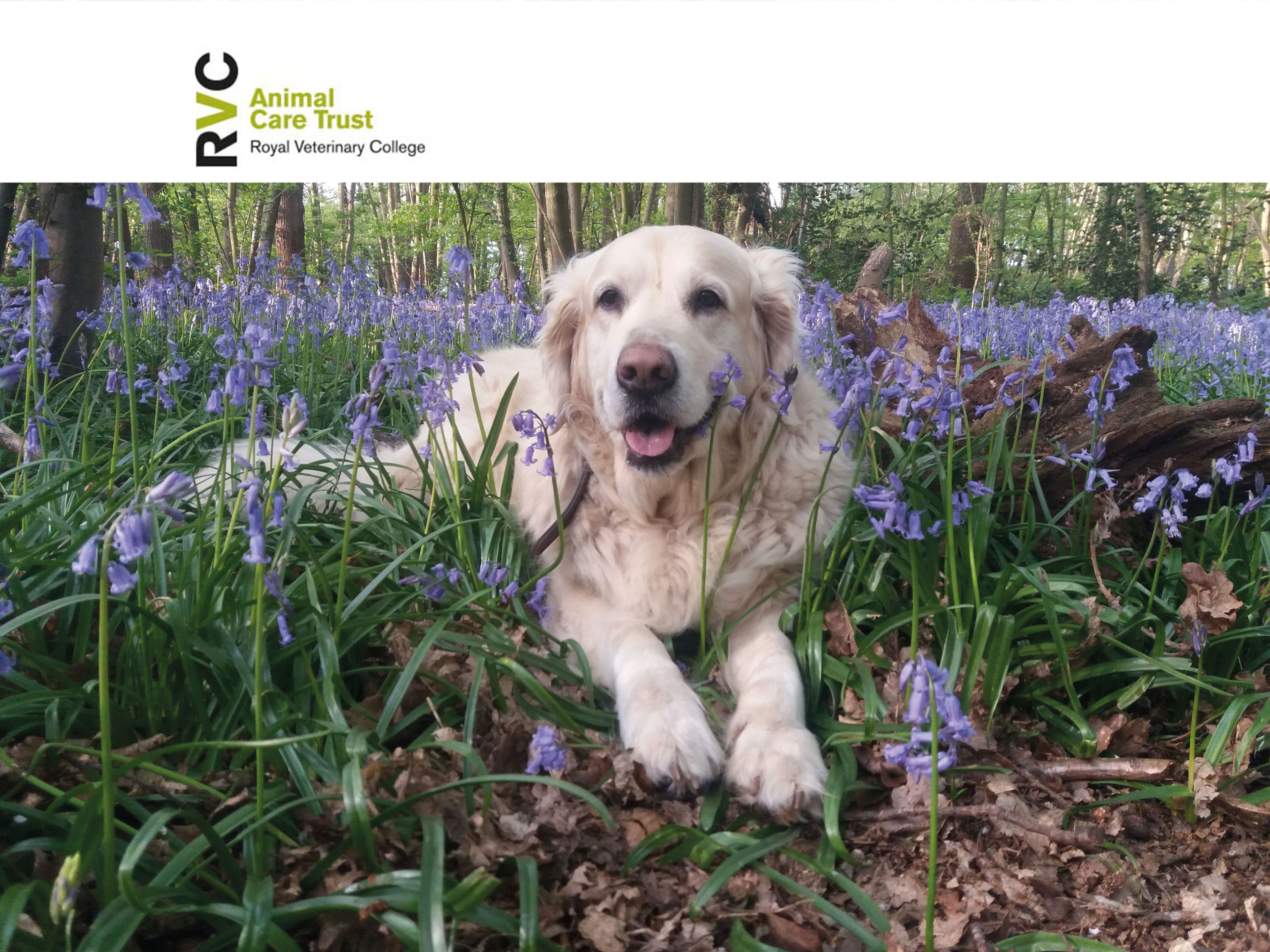
The RVC is a leading, internationally recognised centre for veterinary oncology offering advanced cancer treatments for dogs and cats.
We understand that a diagnosis of cancer in pets can be a frightening and confusing time. Often owners have to make difficult decisions regarding their pet’s treatment. The RVC oncology team offer expert guidance, so pet owners can feel confident they're making the best possible decision for their pet's quality of life.
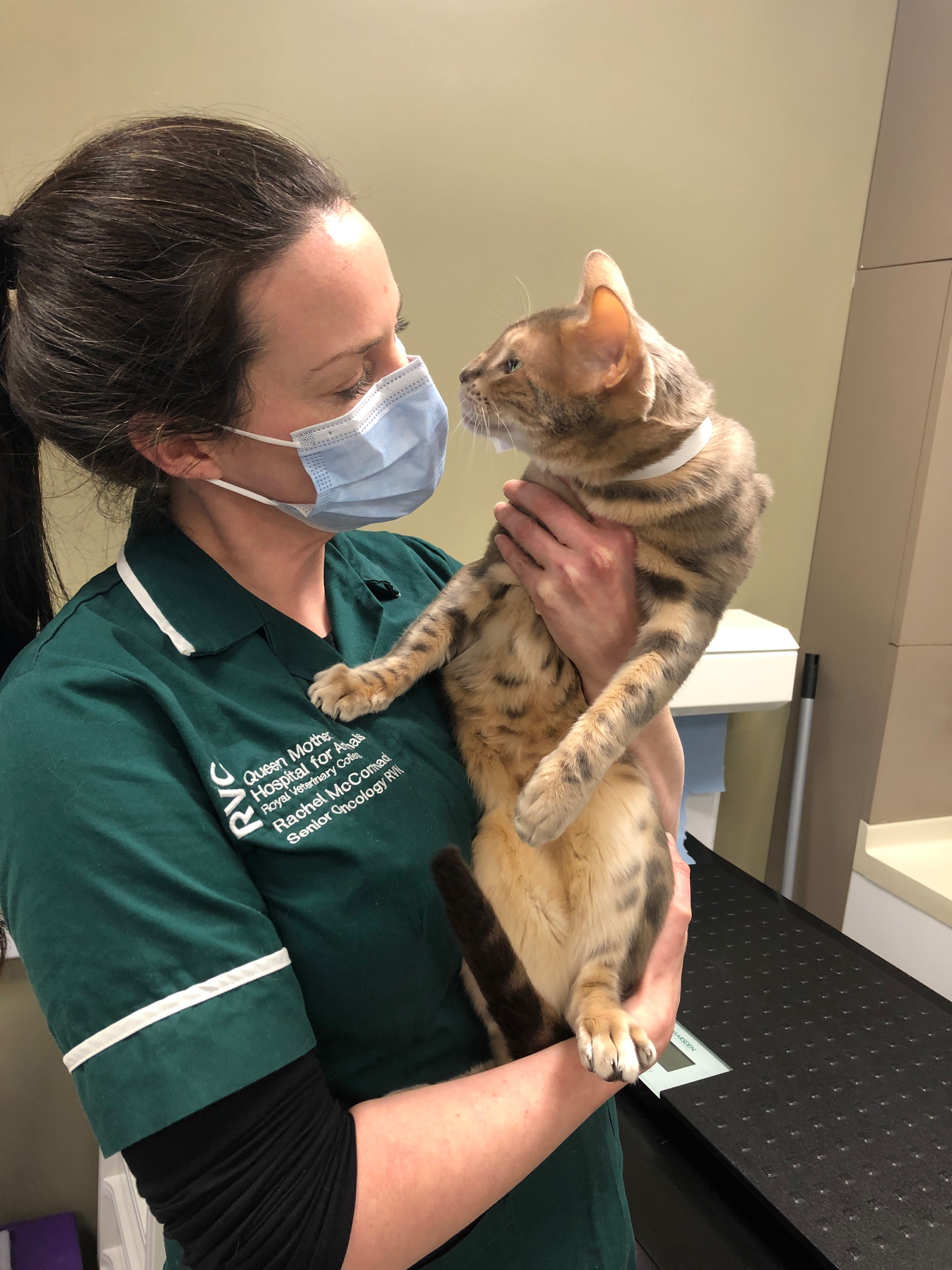
Treating Cancer
Neil and Preethy talk about their decision to give their cat Lokie chemotherapy.
Luther's story
Luther was diagnosed with renal lymphoma (cancer of the kidneys) in July 2017. This is a rare form of feline lymphoma with only a handful of cases reported. Decisions about treatment and prognosis were therefore trickier to make.
"They explained they did not know how long we would have with him."
Sadly, normal survival times for renal lymphoma is around six months, with occasional patients doing well long-term. The goal for Luther’s chemotherapy was to give him a good quality of life. He responded well.
Luther was regularly monitored during his treatment. His owner Katy explains that it was hard to get Luther to take his oral medication because “he is strong and wriggly” and so his treatment was adjusted to make life at home as straight forward as possible.
Treatment continued throughout August and against all the odds, he went into partial remission. Given his young age and good response to treatment, the oncology team decided that they would continue with the stronger regime rather than moving on to maintenance chemotherapy. By December 2017 he was in full remission – a highly unusual result for
a highly unusual cancer.
“Looking at Luther you would think nothing has been wrong with him. There are some days I think back to how ill he was, it’s a miracle he’s still with us”.
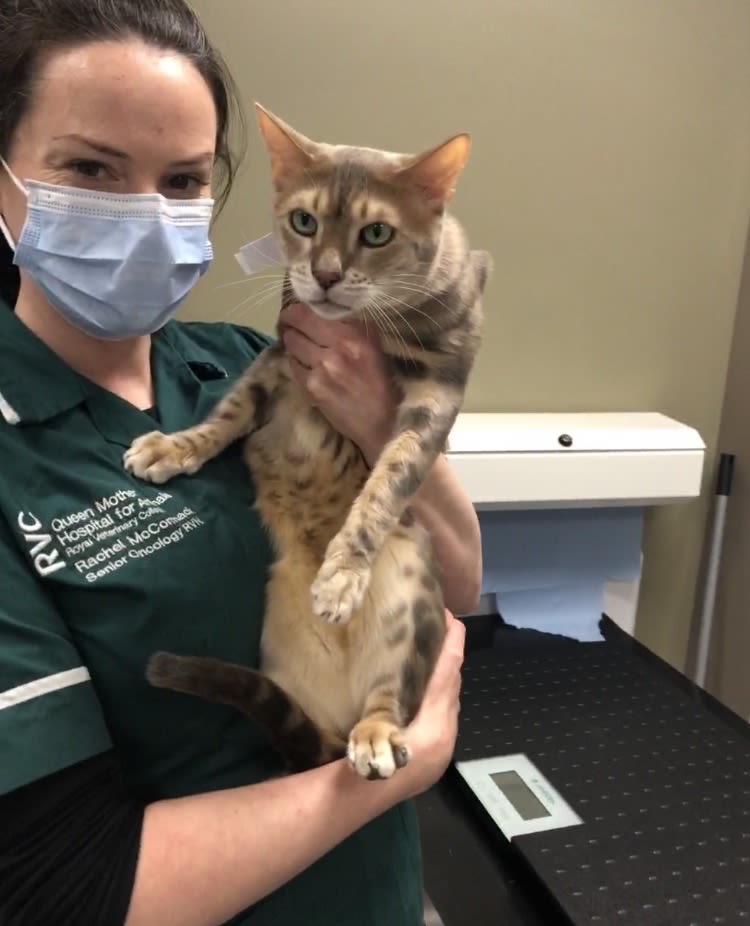
Luther with Oncology Veterinary Nurse, Rachel
Luther with Oncology Veterinary Nurse, Rachel
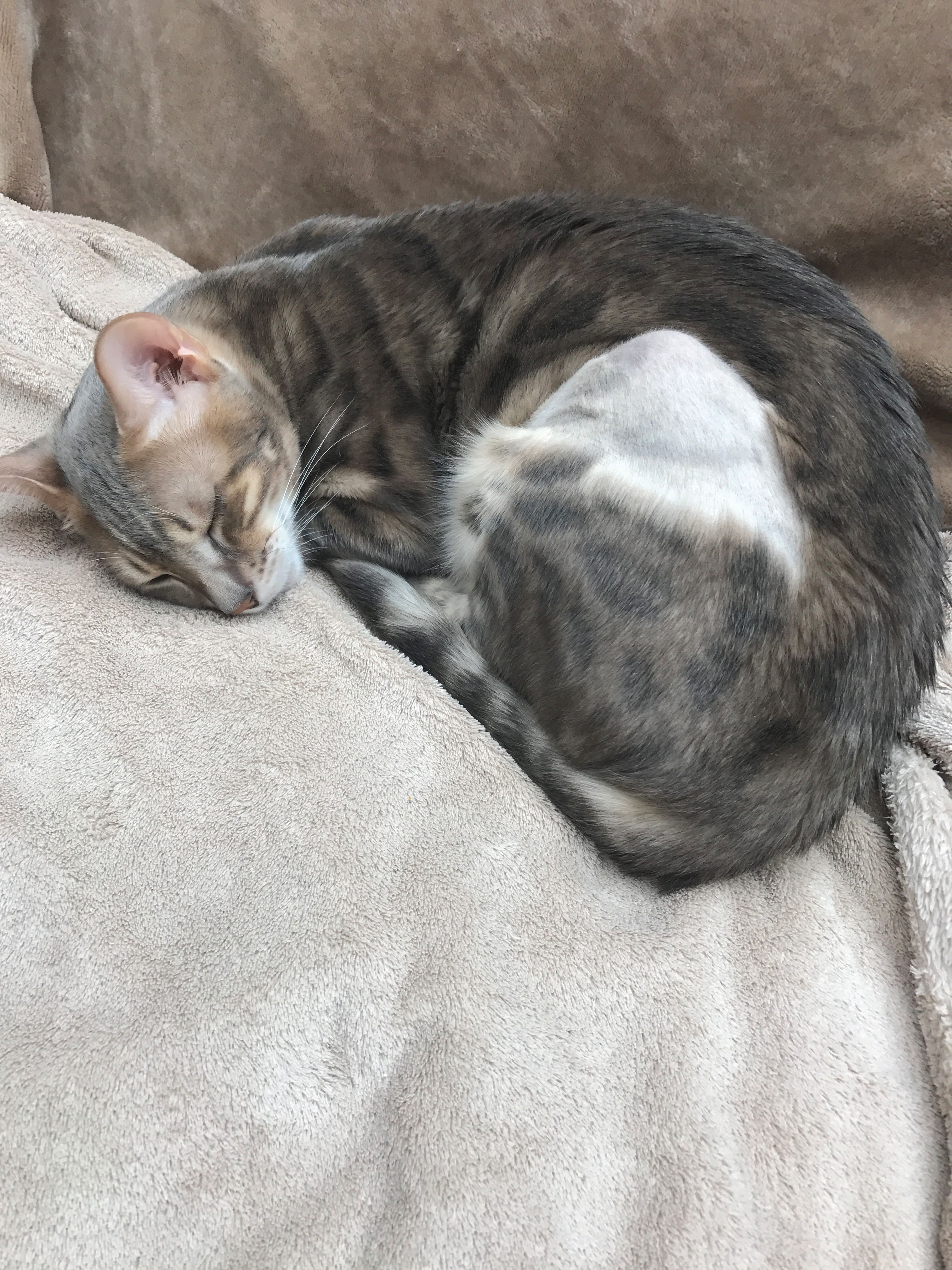
Luther, snuggled up on the sofa at home
Luther, snuggled up on the sofa at home
Did you know?
The doses of chemotherapy given to pets are lower than the ones given to treat cancer in people. This reduces the risk of side effects. Maintaining a good quality of life is our priority.
How can my money help?
£8 pays for flexible thermometers
£28 pays for a kennel mattress
£205 buys cordless clippers
£780 pays for a blood pressure doppler
£1,400 enables us to get a Lo-lift trolley
£2,000 buys cat condo kennels
£30,000 funds a dedicated treatment room
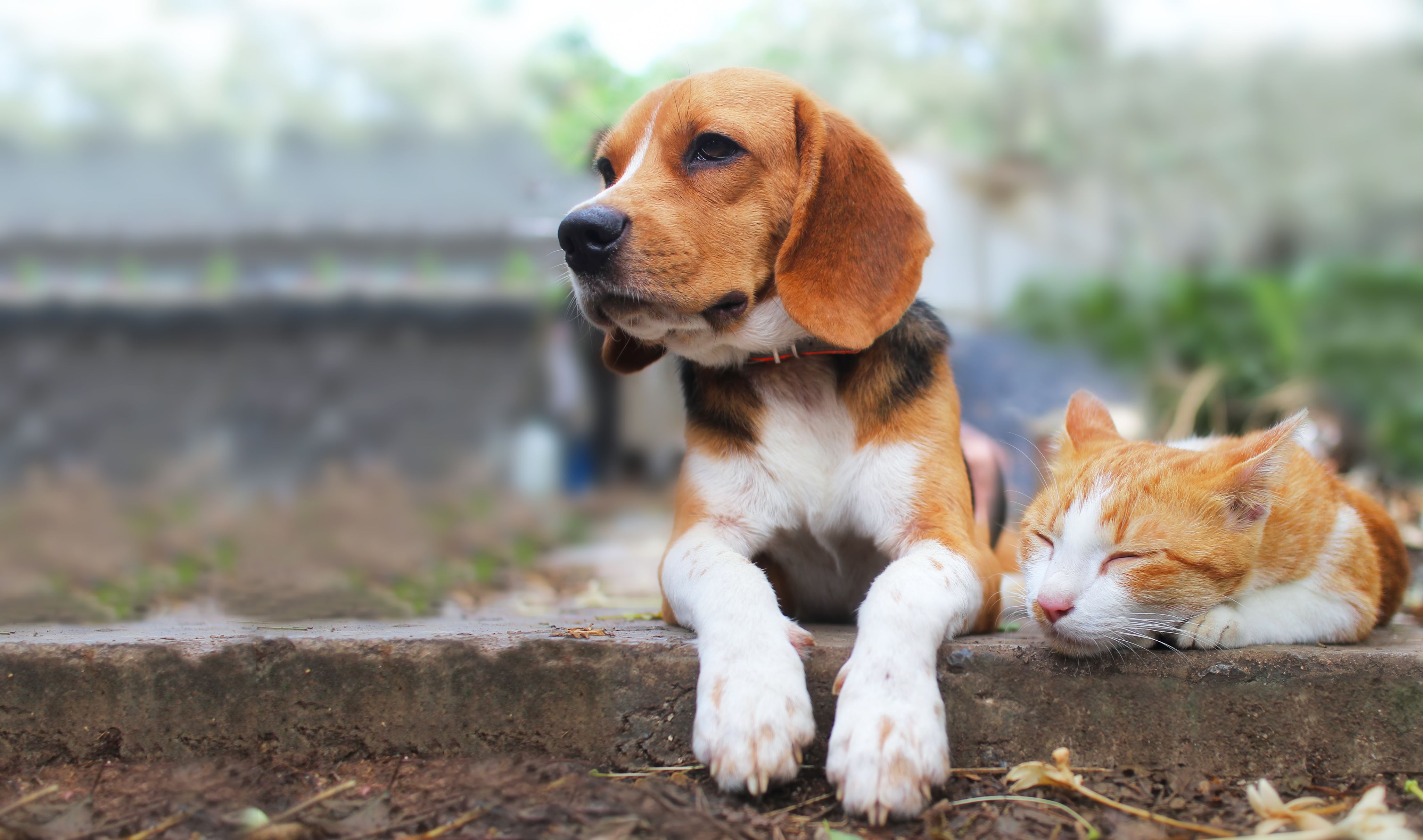
Charlie's last chemotherapy
See the oncology team in action as they give Charlie chemotherapy.
"The chemo has given Charlie longer in this world with quality of life. Our hope is that his story inspires people to support the ACT and help other pets going through this dreadful disease."
Iain Earle, Charlie's owner
Find out more about Charlie
Charlie had become lathargic and was referred to the RVC's Queen Mother Hospital for Animals in October 2021. Investigations showed a mass in his chest and Charlie was diagnosed with lymphoma. A week later he started chemotherapy.
The team put a treatment plan together, which consisted of
a multi-agent chemotherapy protocol (CHOP). This combined 4 drugs over a 19- week period on a near weekly basis. The aim was to induce lymphoma remission, which often occurs and lasts for months following completion of chemotherapy. However, in most cases, future relapses are expected. When this happens repeat protocols can be used depending on when the relapse occurs.
Charlie’s chemotherapy could cause the same side effects that humans experience. Nausea, vomiting, diarrhoea, decreased appetite and myelosuppression (low white blood cells) were all possible. Charlie’s only other option would have been palliative care. With this later course of action, Charlie may have only lived a few weeks more.
The decision on giving Charlie chemo was probably one of the most difficult decisions in our lives. The travelling, the possible side effects, all weighed heavy on our minds”
The family wanted Charlie to continue with the good quality of life he’d had. They recall how:
"He’d always been a good boy, mischievous at times, escaping onto the cricket field behind our house and stopping play whilst being rounded up, all funny, good memories”.
The prognosis for Charlie wasn’t clear. Typical survivals for dogs with non-indolent mediastinal lymphoma are in the range of 6-9 months. However, in Charlie’s case the small lymphocytic morphology nature of his cancer (outside the bone marrow) meant a better prognosis was possible.
Charlie had a difficult first 24 hours on his chemotherapy
but after that both his energy levels and appetite significantly improved. Each weekly visit saw further improvements indicating a good response to treatment, albeit with occasional nausea and a poorly tummy.
Fast forward to February 2021 and Charlie’s family are delighted to see him “playing, active and happy”. Moving ahead with this type of treatment hasn’t been without its struggles. From managing side effects, multiple journeys to the hospital for chemotherapy and daily medication to administer at home. But Iain and Tracey tell us
“we feel we have made the right decision especially when we see him walking and playing with other dogs, wanting to play tug of war with the family as he did before and that waggy tail of course”.
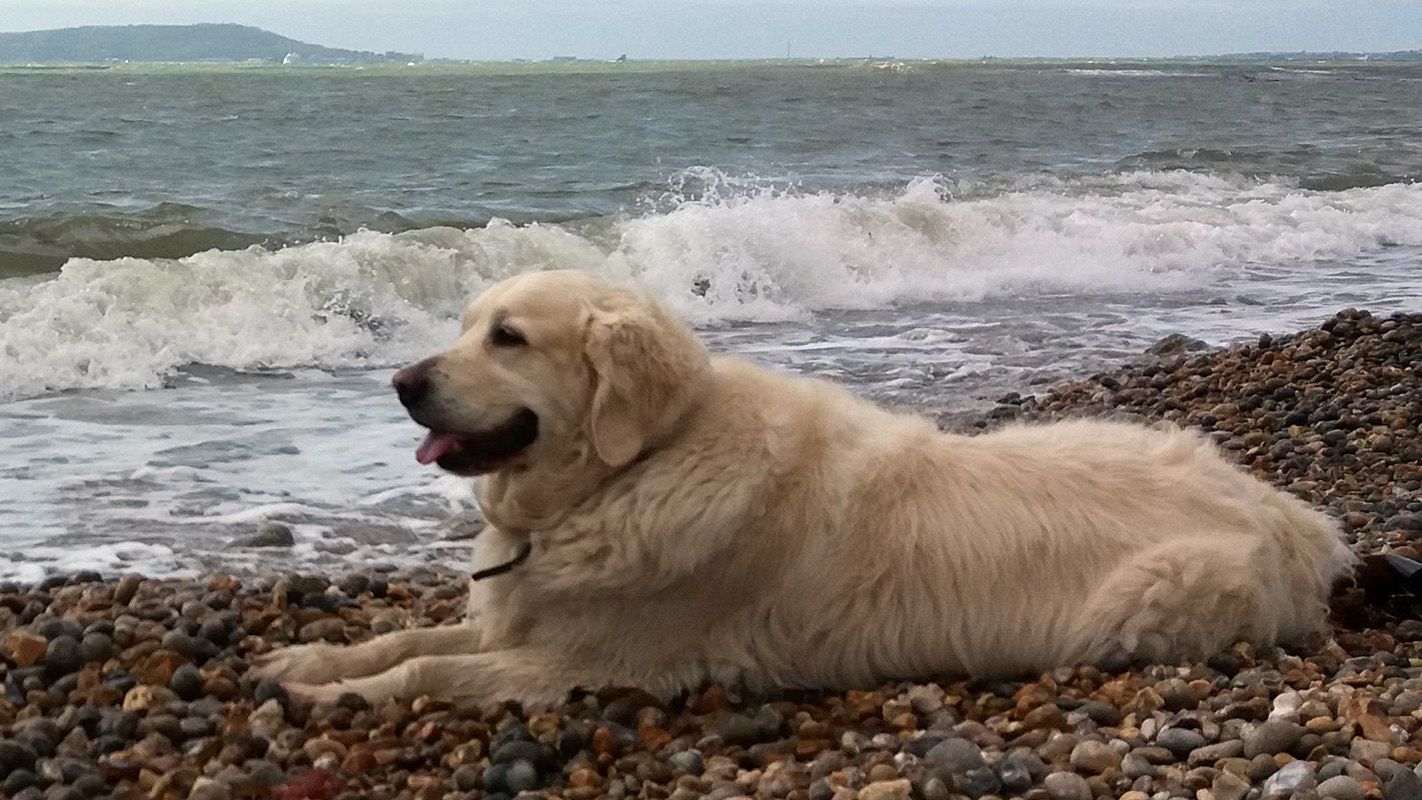
Charlie relaxing at the beach
Charlie relaxing at the beach
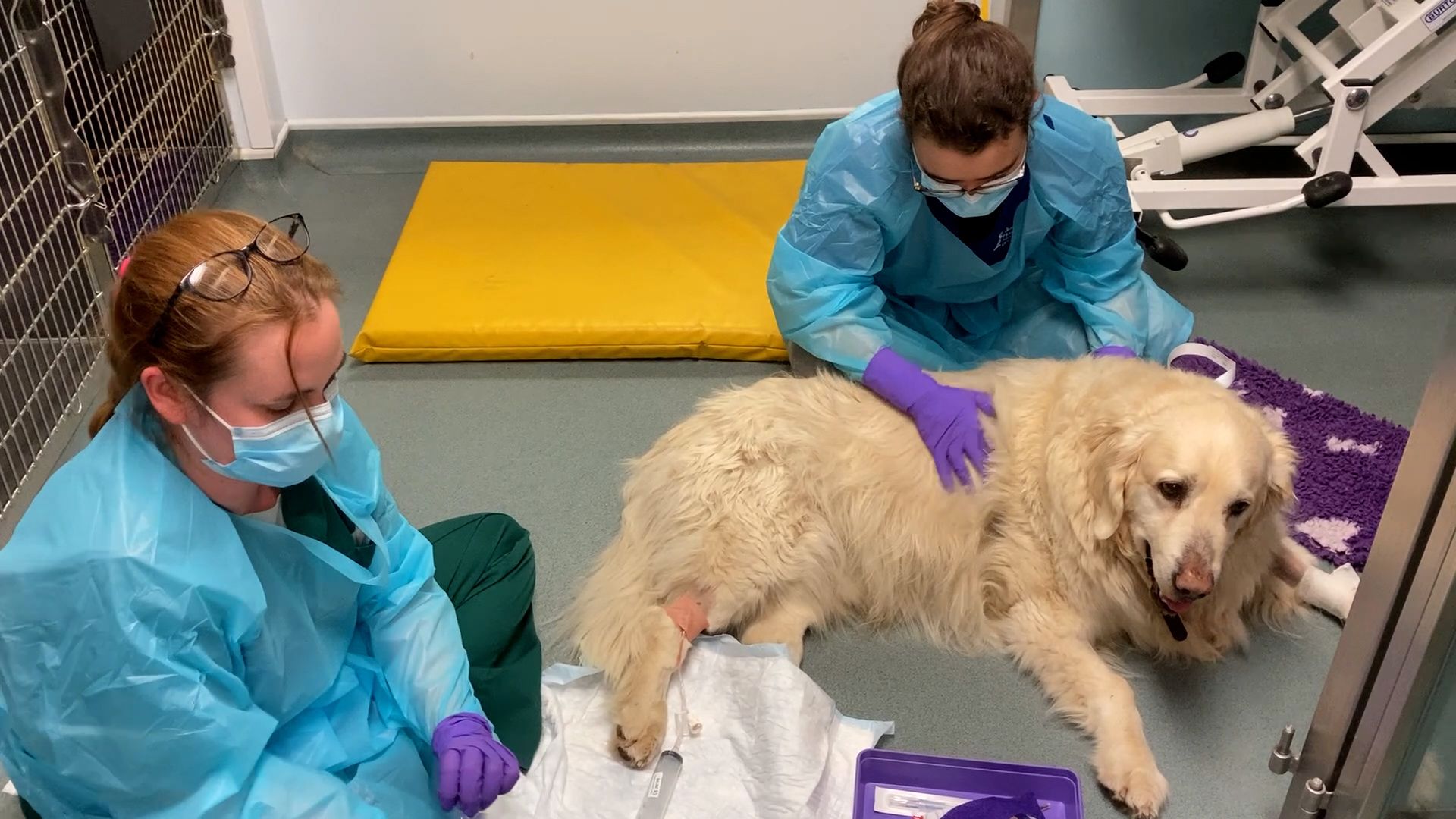
Charlie getting his last dose of chemotherapy
Charlie getting his last dose of chemotherapy
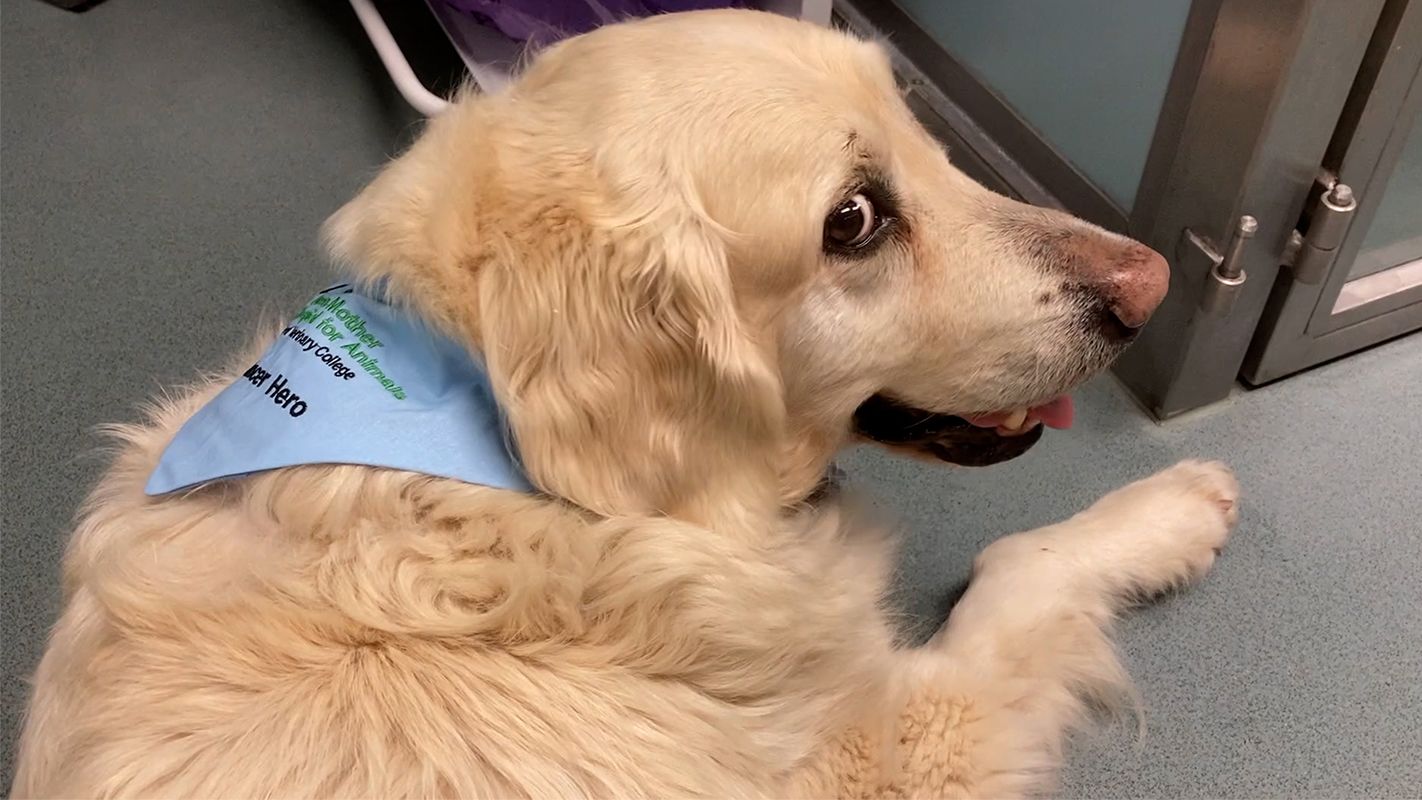
Charlie wearing his 'Cancer Hero' bandana after his last chemotherapy session
Charlie wearing his 'Cancer Hero' bandana after his last chemotherapy session
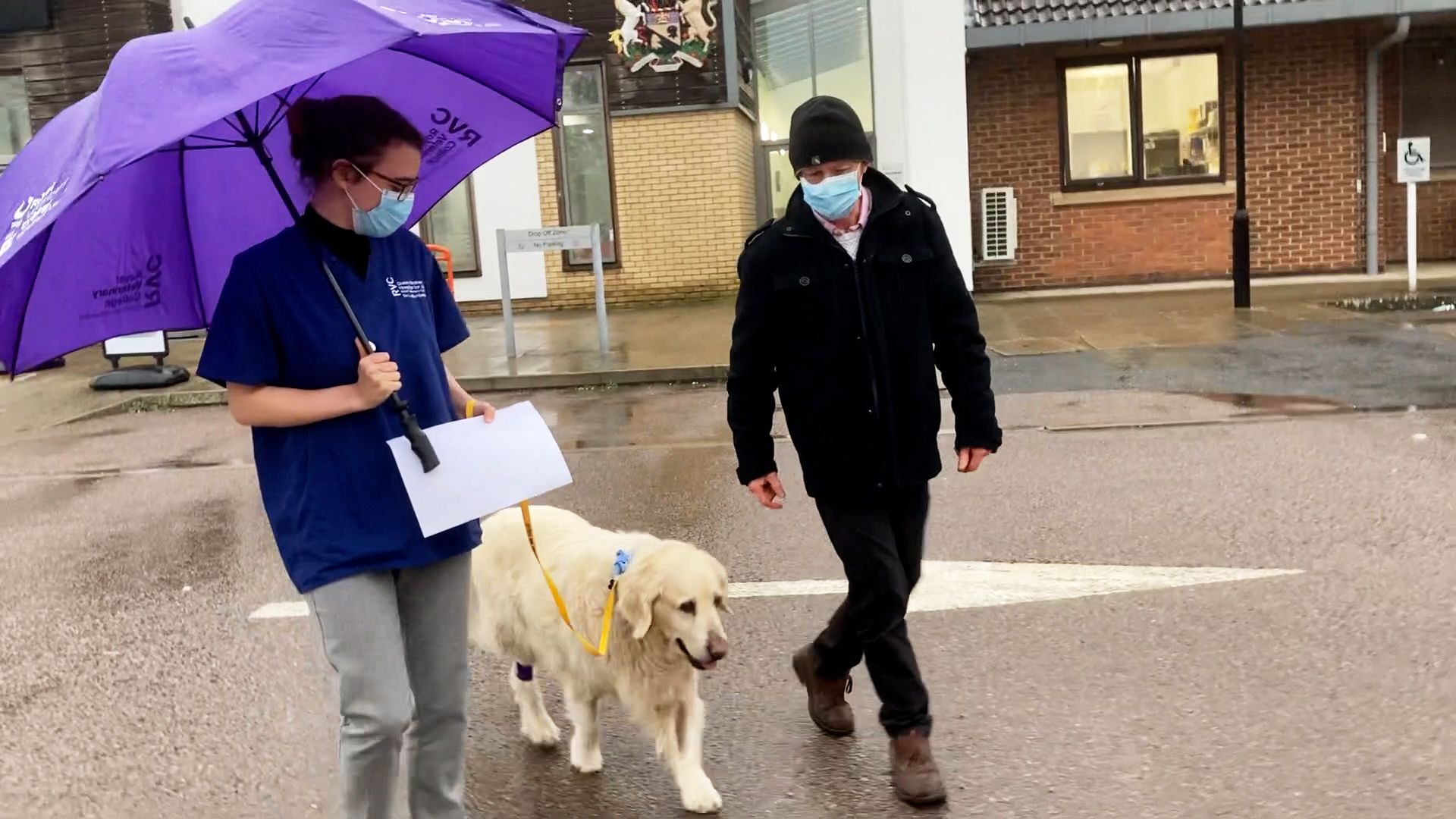
Charlie leaves the hospital with Iain, his owner, and Lydia, his doctor
Charlie leaves the hospital with Iain, his owner, and Lydia, his doctor
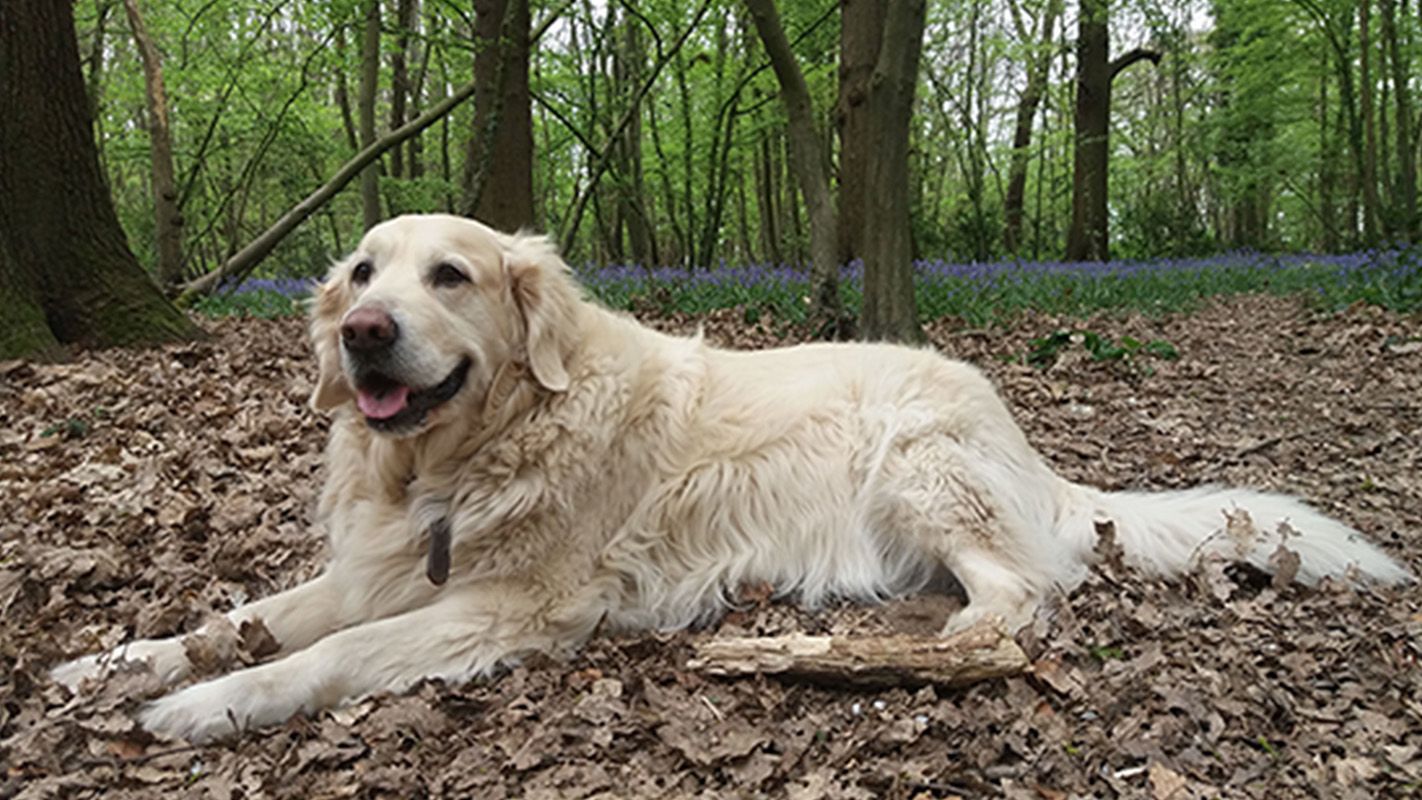
Charlie in the wood
Charlie in the wood
Did you know?
Dogs and cats do not typically lose their fur with chemotherapy. However, breeds such as poodles and bichon frise can have hair loss. Cats can also lose their whiskers.
If a pet has had their fur clipped as part of the procedure (i.e. to take a blood test or administer chemo) it will grow back slowly.
Thank you for finding out about our Spring Appeal.
Thank you for helping us to improve animal health and care.
For over 30 years we've been fundraising to support the RVC's hospitals, education and research.
We couldn't do it without you.
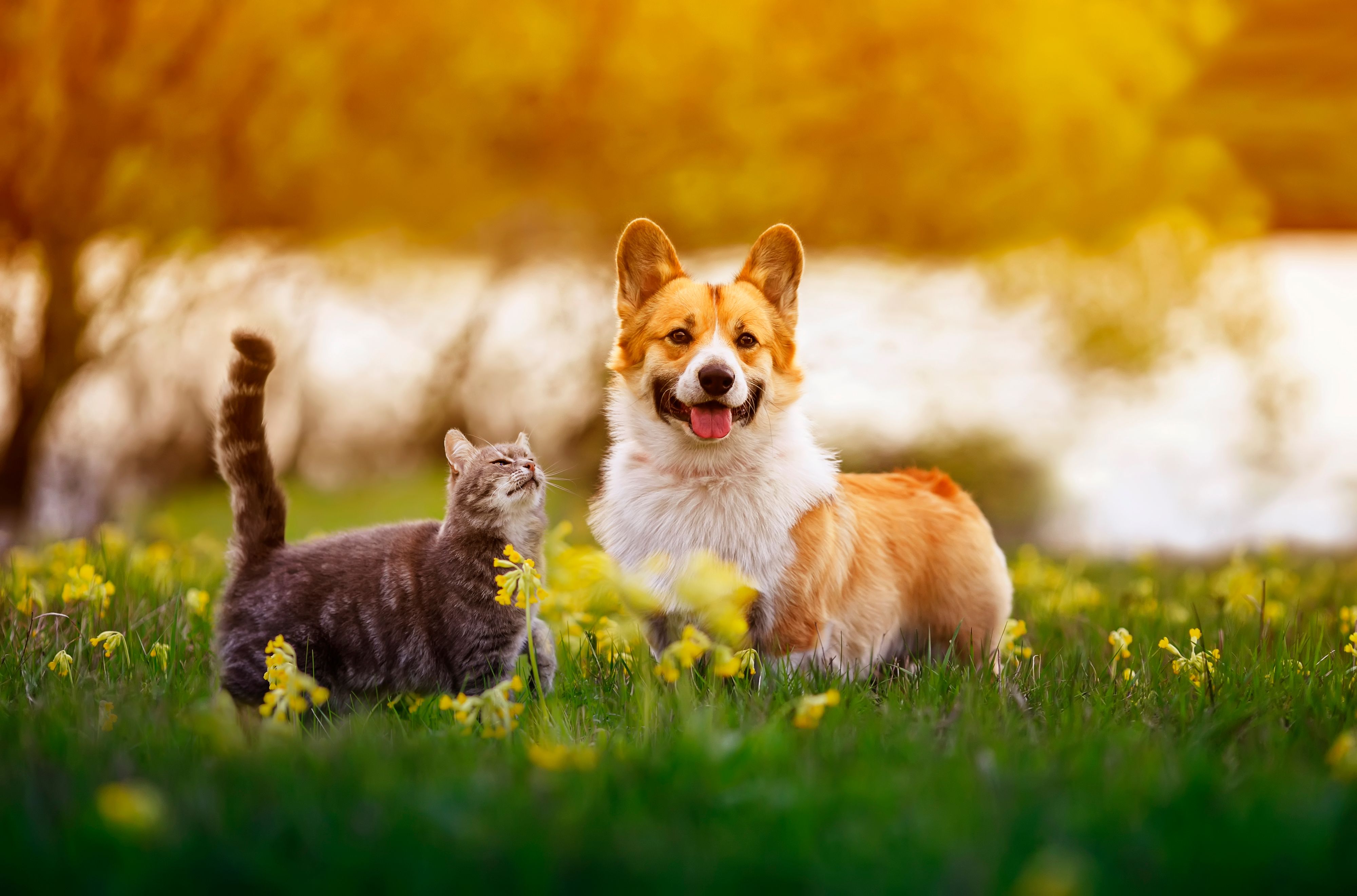
Join our community on social media
Let's stay connected all year round! For news about the RVC's hospitals, our fundraising impact, and stories from our incredible supporters, follow us online.
Contact us
The Royal Veterinary College Animal Care Trust
Hawkshead Lane
North Mymms
Hertfordshire
AL9 7TA
act@rvc.ac.uk